MercoPress. South Atlantic News Agency
Latin America
-
Wednesday, February 19th 2014 - 23:01 UTC
In a pre-recorded message López calls for protests against Maduro to continue
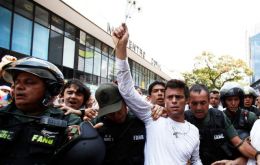
Imprisoned protest leader Leopoldo Lopez urged supporters to keep fighting for the departure of Venezuela's populist government, even as he was due in court accused of fomenting unrest that has killed at least five people.
-
Wednesday, February 19th 2014 - 22:50 UTC
Majority of Argentines want Cristina Fernandez to finish her four year mandate
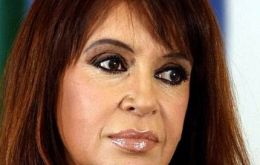
Over half the Argentines want president Cristina Fernandez to remain in office and to finish her four year mandate and at the same time reject conspiracy theories which pretend to force the exit of the controversial leader.
-
Wednesday, February 19th 2014 - 22:38 UTC
Mercosur to meet 7 March to finalize the proposal to be presented to EU
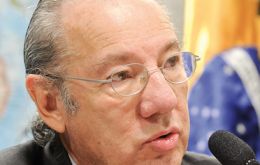
In early March Mercosur will have readied its proposal to liberate trade to be presented to the European Union, the basis for a wide-ranging cooperation and trade agreement between the two blocks, announced Rubens Barbosa, head of the Trade Council from the Sao Paulo State Industries Federation, FIESP.
-
Wednesday, February 19th 2014 - 22:24 UTC
Hague and Figuereido optimistic about outcome of the delayed Mercosur/EU trade pact

Brazilian and UK foreign ministers Luiz Alberto Figuereido and William Hague said that Mercosur and the European Union are concluding the tariffs' reduction proposals which they plan to exchange as part of the process leading to a wide ranging cooperation and trade agreement between the two blocks.
-
Wednesday, February 19th 2014 - 04:58 UTC
Santos sacks Colombian top brass following exposure of corruption ring
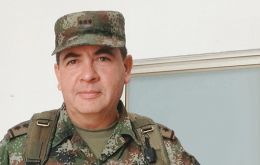
President Juan Manuel Santos announced on Tuesday a major overhaul of Colombia's armed forces high command following revelations of corruption in military procurement.
-
Tuesday, February 18th 2014 - 21:33 UTC
Mujica exposed 'to contempt of justice' for refusing to pay Judiciary branch budget increase

The Uruguayan Judiciary branch warned President Jose Mujica that he is in contempt of justice for ignoring a budget bill that contemplates salary increases for judges and other members of independent government bodies.
-
Tuesday, February 18th 2014 - 20:25 UTC
In the midst of a huge turnout, Venezuelan opposition leader hands himself to security forces
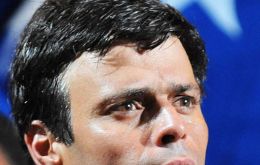
Hard-line opposition leader Leopoldo Lopez has handed himself over to Venezuelan security forces answering an arrest warrant placed on the figure following last week's fatal protests against the regime of President Nicolas Maduro. The government formally accused Lopez of instigating the protests and conspiring for a right-wing coup.
-
Tuesday, February 18th 2014 - 08:41 UTC
Brazilian industry wants to change Mercosur rules and demands an urgent trade accord with the EU
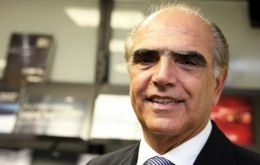
Brazil's National Confederation of Industries, CNI, supports a review of Mercosur rules such as the current impediment for member countries to negotiate trade agreements with third countries, and fervently backs an urgent full trade and cooperation agreement with the European Union.
-
Tuesday, February 18th 2014 - 05:25 UTC
Chile's incoming coalition with divided support over events in Venezuela
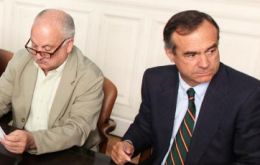
The Chilean coalition of Chilean president elect Michelle Bachelet is divided on how to address events in Venezuela, according to the latest statements. While the Christian Democrats support the 'democratic forces' in Venezuela in reference to the marches against President Nicolas Maduro, the Communist party accused 'destabilization attempts' as the reason for the widespread violence.
-
Tuesday, February 18th 2014 - 05:19 UTC
Unasur calls for preservation of institutions and democratic principles in Venezuela
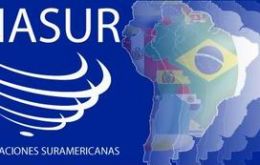
The Union of Southern Nations (UNASUR) expressed on Monday its “energetic condemnation” of the violent episodes recorded over the last week in Venezuela during conflicting opposition and pro-government marches, and called for “the preservation of institutions and democratic principles” in the divided nation.
